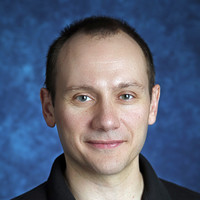
Igor Dolgov
Summary
Dr. Igor Dolgov attained a Bachelor of Science and Engineering (BSE) in Computer Science from Princeton University, with a certificate in Intelligent Systems and Robotics. He continued his education at Arizona State University where he received the University Graduate Scholar Award while earning a Ph.D. in Psychology as part of the Cognition, Action, & Perception Program in the Department of Psychology, and serving as an NSF IGERT fellow with the School of Arts, Media, & Engineering. Dr. Dolgov currently holds a tenured associate professorship in Engineering Psychology at New Mexico State University, and has established the “pacman” laboratory which investigates Perception, Action, and Cognition in Mediated, Artificial, and Naturalistic Environments (PACMANe). He also collaborates extensively with the Physical Sciences Laboratory’s 21st Century Aerospace Program. His NASA-, FAA-, and NSF-funded research is focused on the human factors of unmanned aircraft systems (UAS), and was featured in the FAA’s 2013 roadmap for the Unmanned Aircraft Systems (UAS) in the National Airspace System (NAS). Additionally, he is advancing scholarship in the areas of trust in automated systems, graphic user interface design, affective computing, visual search, navigation, and gaming. Along with Dr. Dolgov’s applied research activities, his theoretical work focuses on the interplay between perception, cognition, and action, in both naturalistic and artificial contexts.
Agents & Multi-Agent Systems Artificial Intelligence Autonomous Systems Computational Science Data Science Human-Computer Interaction Psychiatry & Psychology Robotics Scientific Computing & Simulation Social Computing